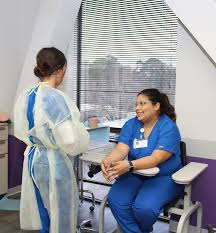Medical assistant programs offer a gateway to a fulfilling career in healthcare, combining administrative duties with clinical tasks to support doctors and other medical professionals. These programs are designed for individuals who are passionate about healthcare and want to make a positive impact in patients' lives. This article will delve into what you can expect from a medical assistant program and the opportunities it can provide.
What Medical Assistant Programs Entail
Medical assistant programs are comprehensive courses that cover a wide range of skills necessary for the role. These programs typically include both classroom instruction and hands-on clinical training, ensuring that students are well-prepared for their future careers.

Curriculum and Training
The curriculum of medical assistant programs includes subjects such as medical terminology, anatomy and physiology, pharmacology, and patient care. Students will learn how to perform routine clinical tasks such as taking vital signs, administering medications, and assisting with minor surgical procedures. Additionally, the programs cover administrative skills, including medical billing and coding, scheduling appointments, and managing patient records.
One important aspect of the training is the emphasis on practical experience. Most programs include a clinical externship or practicum where students work in real healthcare settings. This hands-on experience is crucial for applying classroom knowledge to real-world scenarios and developing the confidence and skills needed for the job.
Certification and Licensing
Upon completing a medical assistant program, graduates may seek certification to enhance their employment prospects. Certification is not always required but is highly valued by employers. The most common certification for medical assistants is the Certified Medical Assistant (CMA) credential, awarded by the American Association of Medical Assistants (AAMA). Other certification options include the Registered Medical Assistant (RMA) from the American Medical Technologists (AMT) and the National Certified Medical Assistant (NCMA) from the National Center for Competency Testing (NCCT).
Career Opportunities
Medical assistants are employed in a variety of healthcare settings, including hospitals, clinics, private practices, and specialty offices. The role is versatile, and professionals can choose to work in different areas of healthcare, such as pediatrics, geriatrics, or internal medicine. With experience, medical assistants may also have the opportunity to advance to supervisory positions or specialize in areas like medical billing and coding or patient advocacy.
Job Outlook and Salary
The demand for medical assistants is growing rapidly, driven by an aging population and the increasing need for healthcare services. According to the U.S. Bureau of Labor Statistics, employment of medical assistants is projected to grow much faster than the average for all occupations. This growth translates into a strong job outlook and numerous opportunities for those entering the field.
In terms of salary, medical assistants can expect competitive wages. While the exact salary varies depending on location, experience, and the specific healthcare setting, medical assistants generally earn a respectable income. Many employers also offer benefits such as health insurance, retirement plans, and paid time off.
Skills and Qualities
Successful medical assistants possess a combination of technical skills and personal attributes. Attention to detail, strong communication skills, and the ability to handle multiple tasks efficiently are essential qualities for the role. Compassion and empathy are also crucial, as medical assistants often interact closely with patients and need to provide comfort and support during their healthcare experiences.
